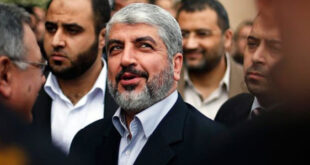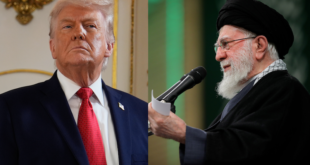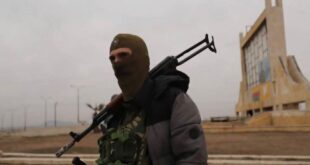Relying on the legacy of his supremely connected late father, Prime Minister Saad Hariri used to repeatedly conjure solutions for Lebanon to survive economic trouble.
Having in the past secured Arab Gulf rescue packages and employed seasoned players to manage monetary policy, Mr Hariri seems to be running out of options, largely because of a power-sharing deal he struck with Hezbollah this year.
The deal sidelined Mr Hariri from foreign policy, handing it firmly to Hezbollah and its allies in the government and the presidency.
Since 2011, Hezbollah has launched fervent rhetoric against Arab Gulf states and acted as a cross-border Shiite militia, drawing intensified US sanctions. The Arab carte blanche, extended to Lebanon so many times in the past, has vanished.
As Mr Hariri prepares to visit Dubai for a Lebanese-UAE investment conference on October 7, pressure on the Lebanese currency has mounted.
Economic growth has been negligible for years, the real estate market has collapsed and Lebanon’s public debt, at one and half times GDP – one of the highest ratios – in the world, shows no signs of being brought back under control.
Weeks after US sanctions forced a sizeable Lebanese bank linked to Hezbollah into liquidation, the central bank, Banque du Liban, imposed restrictions on dollar withdrawals.
The action prompted demonstrations in Beirut and the emergence of a currency black market that threatens to undermine a dollar peg that has held for decades, although Banque du Liban says dollar supply is secure.
US sanctions did not cause the crisis but they have exposed the difficulty in securing international support, something created by Hezbollah’s deepening influence in Lebanese state organisations, in its security apparatus and as a militia answerable only to Iran.
The 2005 assassination of Mr Hariri’s father, the statesman Rafiq Hariri, produced Arab and western support that Lebanon survived for years.
This was until Hezbollah, four of whose operatives were indicted for the Hariri assassination by an international tribunal at The Hague, overran parts of Beirut in 2008 in a lethal use of force.
The action, during an outbreak of hostilities with outgunned supporters of Mr Hariri and his allies, reminded everyone that Hezbollah is Lebanon’s most powerful player by far, aided by its status as the only non-state group officially allowed to bear arms.
After 2011, Hezbollah came out in support of Iran in Syria, where a pro-democracy uprising threatened the Al Assad family’s rule, and in Yemen and Iraq.
The group mounted at least two cross-border attacks from Lebanon against Israel in response to Israeli strikes against members of Iran’s Revolutionary Guard and Hezbollah in Syria.
Sami Nader, director of the Levant Institute for Strategic Affairs, said Hezbollah’s actions lessened Lebanon’s chances of securing direct aid and sharply reduced crucial inflows from most GCC countries in tourism, private investment and remittances.
“Supposedly we are all … in the same boat if it is wrecked, but at the end of the day Hezbollah is proving it is following Iranian priorities and Iran does not care about Lebanon. It cares about Iran,” Mr Nader told The National.
The Dubai conference is being held a year and a half after a major donors’ meeting in Paris pledged $11 billion (Dh40bn) to help the Lebanese economy in the form of infrastructure projects and private investment funding, but no significant money has been dispensed.
Saudi Arabia pledged $1bn in credit in Paris but, like the rest of the $11bn, this is contingent on reforms that have not transpired.
Asked whether Mr Hariri could achieve a breakthrough in Dubai, Mr Nader said: “The days when Gulf nations would tolerate the so-called Lebanon exception and help the Lebanon government while a part of the government is waging war against the Gulf is over.”
Mr Nader was referring to the deal Mr Hariri struck this year that brought Hezbollah’s allies into the presidency and the foreign ministry, as well as giving the party and its supporters half of Lebanon’s Cabinet positions.
“Lebanon’s economic depth lies in the Gulf but there will be no longer be a rescue without a price,” Mr Nader said.
By drawing tougher US sanctions and risking historic ties with the Gulf, Hezbollah’s expansion in Lebanon and abroad has undermined the country’s vaunted open economy model.
Lebanon has 6 million people and 18 recognised sects who share power and government jobs.
With the exception of the 1975-1990 civil war, the economy has been the glue that has held the system together since independence in the 1940s.
The laissez-faire model of a religious but democratic system, underpinned by free enterprise, was conceived by Michel Chiha, a Lebanese politician and financier on whose ideas modern Lebanon was established.
The model was boosted by banking secrecy and property guarantee laws pushed for by Lebanese statesman Raymond Edde in the 1950s.
Edde laid the foundations for Lebanon as the Middle East’s deposit box and set up its long-term economic ties with the rest of Arab world.
He died in exile in Paris 19 years ago, having refused to return to Lebanon under what he called Syrian regime tutelage, of which Hezbollah was the primary tool.
In 2006, a year after the Hariri assassination, Hezbollah leader Hassan Nasrallah showed public remorse for inviting, through an attack on a convoy inside Israel, massive Israeli retaliation and a devastating month-long war.
Despite combining its pro-Iranian ideology with pragmatism, the financial nuance that has been crucial to the functioning of Lebanon seems to figure little in Hezbollah’s political calculations amid the regional escalation in which the group is an important participant.
 Eurasia Press & News
Eurasia Press & News


